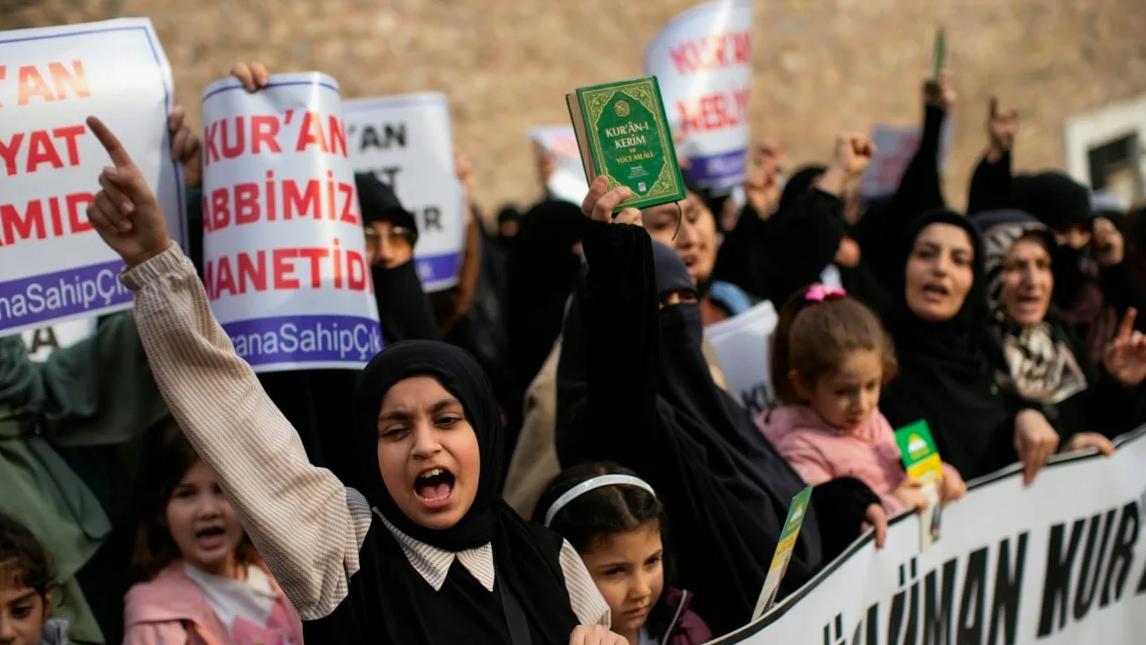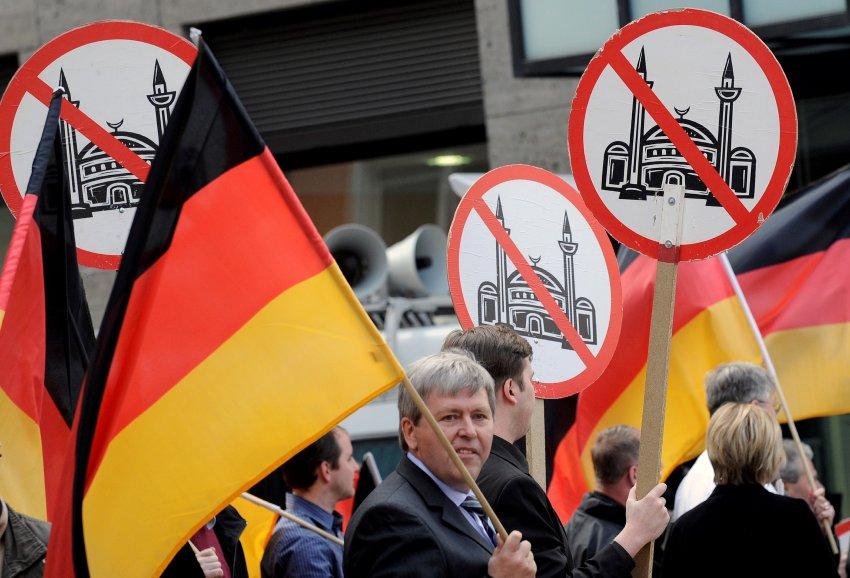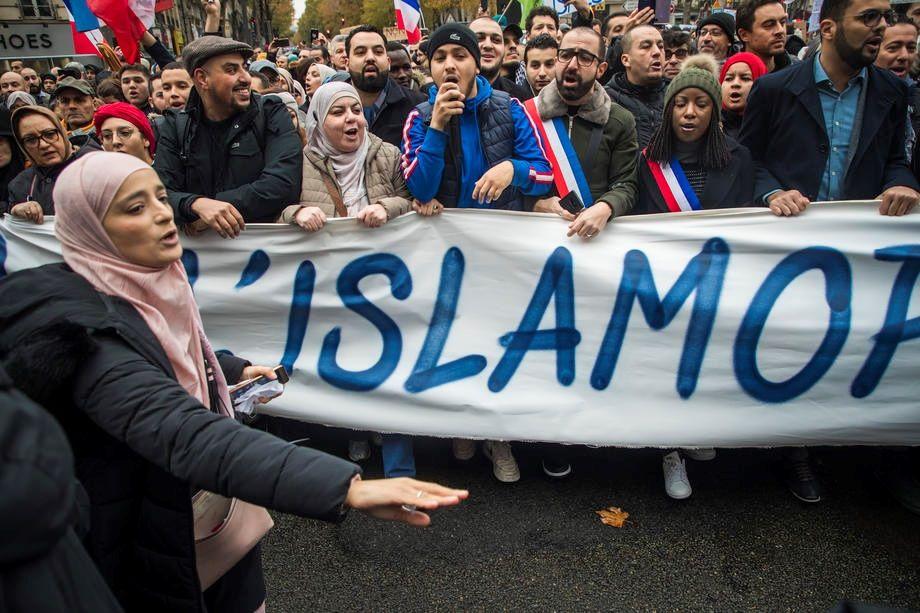Islamophobia & intolerance under the mask of "democracy" Europe puts equality rights on the back burner
The lack of space for religious minorities was one of the main characteristics of the Old World. In Asia or North Africa, Muslims, Zoroastrians, Jews and Christians of various denominations had lived side by side for centuries. For Europeans, the concept of tolerance only emerged in the 16th century as a result of the Reformation and the Wars of Religion. Before that, Jews had been discriminated against and persecuted for centuries, and Europe's Muslim minority had been expelled from Spain and much of the Balkans.
The reality is a far cry from the colourful myth, although EU countries now present themselves as models of tolerance, democracy and respect for human rights. Many observers believe that Europe is still a long way from true tolerance. The legacy of the Dark Ages and centuries of colonialism has not been eradicated. After all, it was only in the late 1960s that criminal penalties for blasphemy and insulting the Christian faith were abolished in the FRG, Switzerland, Sweden and even the GDR (!). While in the last century, the Old Continent was mainly associated with anti-Semitism, today the main form of religious hatred is Islamophobia.
Emmanuel Macron's reign has been a dark time for Muslims in France. Over the past few years, people who practise Islam have been portrayed as a threat to French society. Anne-Salé Kabiz, the son of Moroccan immigrants who ran for the French presidency, said that "there were posters in Paris with my face on them saying '0 per cent French, 100 per cent Islamist'. You don't have the right to be Muslim or even Arab if you're a political activist". Olivier Esteves, professor of British studies at the University of Lille, notes: "Of course, Islamophobia affects most Western democracies, but it is a question of scale in terms of hostility towards Muslims. In France, it goes far beyond other countries".

According to Marwan Mohammed, director of the Centre against Islamophobia in France, the peculiarity of anti-Muslim sentiment in the country is its state, and institutional character. It began in the 1980s when the large numbers of Muslims among workers and the socially disadvantaged were used to explain some of the social problems of right-wing politics. The French media has a great role in stoking Islamophobic sentiments.
One of the consequences of French Islamophobia is an endless brain drain. Thousands of Muslims leave France for the United Arab Emirates, Morocco, Algeria, Canada and other countries. 69 per cent of those surveyed said they left France because of racism and discrimination. Only 4.56 per cent are considering returning, while 44.7 per cent are certain they will never return to France. According to Prof Esteves, "...there are very educated people with university degrees who think that their only option to stay in France is to work in a halal supermarket. If they are not so Muslim, they can work for a large company, but they often feel that their career will be slowed down because of their perceived religious affiliation".
Sweden also has an acute problem of Islamophobia. Most Swedes have "rather negative or very negative attitudes towards Islam", according to research conducted in the 1990s. They believe that Islam is "incompatible with democracy, oppressive towards women and prone to expansion". According to Kalmar University, 49 per cent of Swedish employers treat Muslims worse than native Swedes. 78 per cent believe that Muslims work with lower productivity, although only 12 per cent explicitly say that this group performs worse than ethnic Swedes.

The international media say Muslims cannot feel safe in Sweden. They face religiously intolerant attacks at work, in cyberspace, in schools and universities and their neighbourhoods. Attacks can be both verbal and serious criminal offences.
On 28 June 2023, anti-Muslim radicals publicly burned a Koran outside a mosque in Stockholm, causing an explosion of outrage around the world. Although a statement appeared on the country's foreign ministry website saying: "The Swedish government strongly rejects the act of Islamophobia committed by individuals in Sweden. This act in no way reflects the views of the Swedish government", these words have not convinced everyone. Many Muslims believe that such demarches are impossible without the tacit approval of the authorities.
Islamophobic attitudes in Germany frighten even German experts. DW notes that racism against Muslims and hatred of Islam are rife. Muslims are perceived by Germans as outsiders, '"representatives of a backward religion", and Islam is "generally associated with violence, extremism and backwardness". German Interior Minister Nancy Faeser acknowledged that "many of the 5.5 million Muslims in Germany face social resentment and discrimination in their daily lives, which can lead to hatred and violence".

Mass culture is particularly instrumental in fuelling xenophobia. It was found that 90 per cent of German films portrayed Muslims as being radicalised, terroristic and oppressing women.
Chris Allen writes of the UK: "Islamophobia is politically ambivalent: it can be routinely used by politicians for political and personal gain, knowing that there will be no redress or censure because there is no 'winner'. In essence, few people care".
In short, it is a worrying trend that in most countries Islamophobic rhetoric and practices are not criminalised. They are considered the norm in the political lexicon. Legislative moves in this direction failed in the UK in 2019, defined as a "threat to free speech".
In the Conservative Party, 2/3 of complaints about discrimination within the party relate to the persecution of Muslims: 496 out of 727. According to the Office for National Statistics, a Muslim man is 76 per cent less likely to get a job in any sector than a British Christian with the same education and qualifications. Muslim women, who are unable to defend themselves, are most often the victims of attacks.

Not everyone in Europe recognises discriminating against Muslims and inciting religious hatred. For example, when an EU-funded conference on tackling Islamophobia was held in the Spanish city of Cordoba in 2007, the number of delegations present was extremely small. Some of those attending the forum, ostensibly aimed at defending Muslims, called for "phenomena such as Islamic extremism and the intolerance of radical Muslims towards other religions and cultures to be addressed in Cordoba'". Opponents of Muslims in general try to deny the legitimacy of the term 'Islamophobia'. For example, the Spanish newspaper Razon noted that "radical Islamists declare as 'Islamophobia' any criticism of their co-religionists and Muslim states, even if this criticism relates, for example, to human rights violations rather than religious issues".
Finally, the parallels between anti-Semitism and Islamophobia should be re-emphasised. In both cases, the problem was linked to migration. Beginning in the 19th century, hundreds of thousands of Jews moved west from Central and Eastern Europe seeking a better life. This led to massive anti-Semitic sentiment, with Jews being accused of extremism (usually leftwing radicalism), tending towards criminal lifestyles and being alienated from "European Christian civilisation". As we know, the result of such accusations was the horror of the Holocaust. Late 20th and early 21st-century Islamophobic feelings are also an outcome of the mass immigration of Muslims from war-torn and economically troubled countries in Asia and Africa. The accusations levelled against them are almost identical to those against the Jews, and it is to be hoped that the tragedy of the 20th century can be avoided in the 21st century without having to resort to the same methods.








